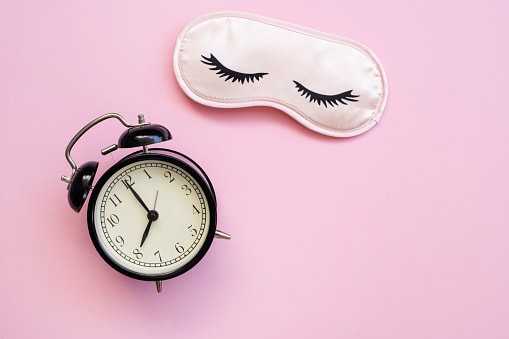Top Tips to a Better Nights Sleep

How to Improve Your Sleep? 5 Things You Should Know.
Having a good night's sleep is a key🔑 ingredient to living a healthy, balanced life and is essential for your body to repair itself. 🤕 Sleep is essential to every bodily function you can think of, from fighting off illness, to importantly upkeeping your physical and mental health.😴 This is why the day after a poor night's sleep may feel impossibly long. 🌪
Here are five5️⃣ tips to help ensure you're using your nights for sleeping, and keeping your days, for you. 🙌
1. A sleep schedule⏲
Maintaining a good sleep schedule is incredibly important for your health. Most adults need between seven and nine hours of continuous sleep, with children and teenagers needing more. 💤
Naturally, your body is programmed to wake up when the sun🌞 does and sleep when it's dark🌛. When you stray from this, it begins to affect your internal body clock. This controls your sleep cycle from controlling when you feel tired on a night to feeling fresh the next morning. So you really need to work with your body and listen👂 to what is telling you.
It would be impossible to go to sleep and wake up every day at the same times, but sticking to a general sleep schedule will really improve your sleep. This includes on weekends. It may sound simple, but your body isn't programmed to alter its sleep cycle on the weekend or the days you aren't working. And this is why you may find yourself waking up without your alarm clock at a similar time on your days off. Being consistent with your schedule can help your sleep long-term, so it may not be the fast fix you want but it definitely will help.

2. Stress management📚
Day-to-day life provides a number of stresses to us and this can affect a number of areas in life. Worrying about things, from work to relationships, can prevent you getting to sleep and may mean you need to find a way to manage these stresses. Assessing what the problem and identifying the stress is a good place to start. Writing these down can pinpoint📌 where something needs to change.
Other ways to help stress management:
- Meditation💭 - meditation can help more than you think. Allowing your body to relax fully for ten or so minutes a day decreases blood pressure, pulse and metabolism, giving way for stress reduction, better digestion and therefore, a more peaceful nights sleep.
- Speaking to someone - a problem shared is a problem halved. This can reduce your stresses more than you think. Whilst the person may not be able to change what is stressing you, they can offer some good insight or even just a shoulder to lean on when you need it.
- Change your patterns - Our reaction to our stresses can be just as anxiety inducing as the actual stress itself. It may be that you don't have a healthy response to how you deal with your problems. There are a number of helpful sites and books that can help you reprogram how you respond to your problems, and minimise their effects to your daily life.
3. A healthy lifestyle🥦
Whilst not a quick fix, having a healthy lifestyle can improve your sleep substantially. The dreaded balanced diet🍉 and exercise🏃♂️.
A well balanced diet improves your sleep more than you know. Usually, people don't need to make huge changes to what they are eating, just small tweaks here and there.
- Complex carbohydrates release serotonin, your sleepy hormone. These are foods like beans, oatmeal and potatoes🥔.
- Some fruits and vegetables contain melatonin, like cherries🍒. Others, like avocados🥑, contain magnesium which has been found to promote deep sleep, and is a natural relaxant.
Getting enough exercise is also key. Although it wouldn't hurt, this isn't to say you need to do long work outs to help you sleep at night. You don't need to exhaust yourself to sleep at night. A lot of people work eight hours sat in front of a desk👨💻, which leads to not getting enough movement in during their day. If you don't have much time around work and all of life's other plans, five minutes from your seat to get some more steps🚶♀️ in here and there, can help you more than you think.
Examples of small changes to your day that help you move more:
- Taking the stairs instead of the lift
- Leave your desk at least once an hour to get movement in
- Take a short walk after your evening meal
4. Avoid your electronics📲
It's hard to avoid your phone and electronics🔌 these days, but they can have an imperative effect on your sleep. Health experts have found that the blue light emitted from the screen affects your production of melatonin, the hormone controlling your sleep-wake cycle. This means you will find it difficult to fall asleep, and consequently wake up the next morning.
Despite the fact you may find going on your phone, and other electronics💻, unavoidable, it is possible to limit your usage, therefore, lowering your exposure to the blue light emitted from screens💡.
There are a number of ways you can do this:
- Ban your phone from your bedroom🔌 - this is the ideal as it allows for less distractions in the bedroom and disturbances in your sleep. Investing in an alarm clock will mean that you still have no problems getting up in the morning and still no missing work!
- Put your phone on ‘Do Not Disturb’ 🔕- if you don't feel comfortable leaving your phone outside of the room for any reason, this avoids the being disturbed with incoming notifications. You can alter the settings, still allowing for important calls but filtering the things that can wait until morning.
- Leave it across the room - having your phone in a reachable distance from your bed allows for temptation to use it. If it is across the room, it will take more effort to use it and may prevent you going on it.
It may sound unnecessary, but it really does have more of an effect on your sleep than one may believe. This doesn't have to be a long term solution, just long enough for you to create a habit of not checking it or going on it when you can't sleep.
5. Your mattress🛏
An incredibly important component to a good night's sleep is a good mattress.🛌 It's undeniable that an old, lumpy mattress is not going to contribute to feeling well rested and refreshed the next day. If you've tried everything else to improve your sleep and it's just not coming to you, this may be your next step.

Most mattresses last between seven and ten years, with a lot of people keeping them much longer than their given lifespan🔄. If you're waking up sore and not sleeping as well as you used to, it may be time to change yours.⌚ There are a number of signs from the mattress that to show it may be time for a new one:
- if its sagging
- if you can feel the springs
- if you can't get comfortable
- if your sleeping situation has changed. For example, pregnancy🤰 or a new partner🚻.
We know it can be time consuming and hard to figure out which mattress is right for you. To make it easier, we have a variety of reviews and comparisons that can help you decide which mattress will be perfect for you and provide you a quality night's sleep. A restful night is just a couple of minutes away.
A durable long lasting mattress is the Emma Original. To get hold of an Emma Original, just click below.
Keep an eye on it
Everybody endures a sleepless night here and there. But if you are often not sleeping well, contact your a health professional.
Get the sleep you deserve with our mattress and sleeping product reviews.
© Undercover Mattress 2022






